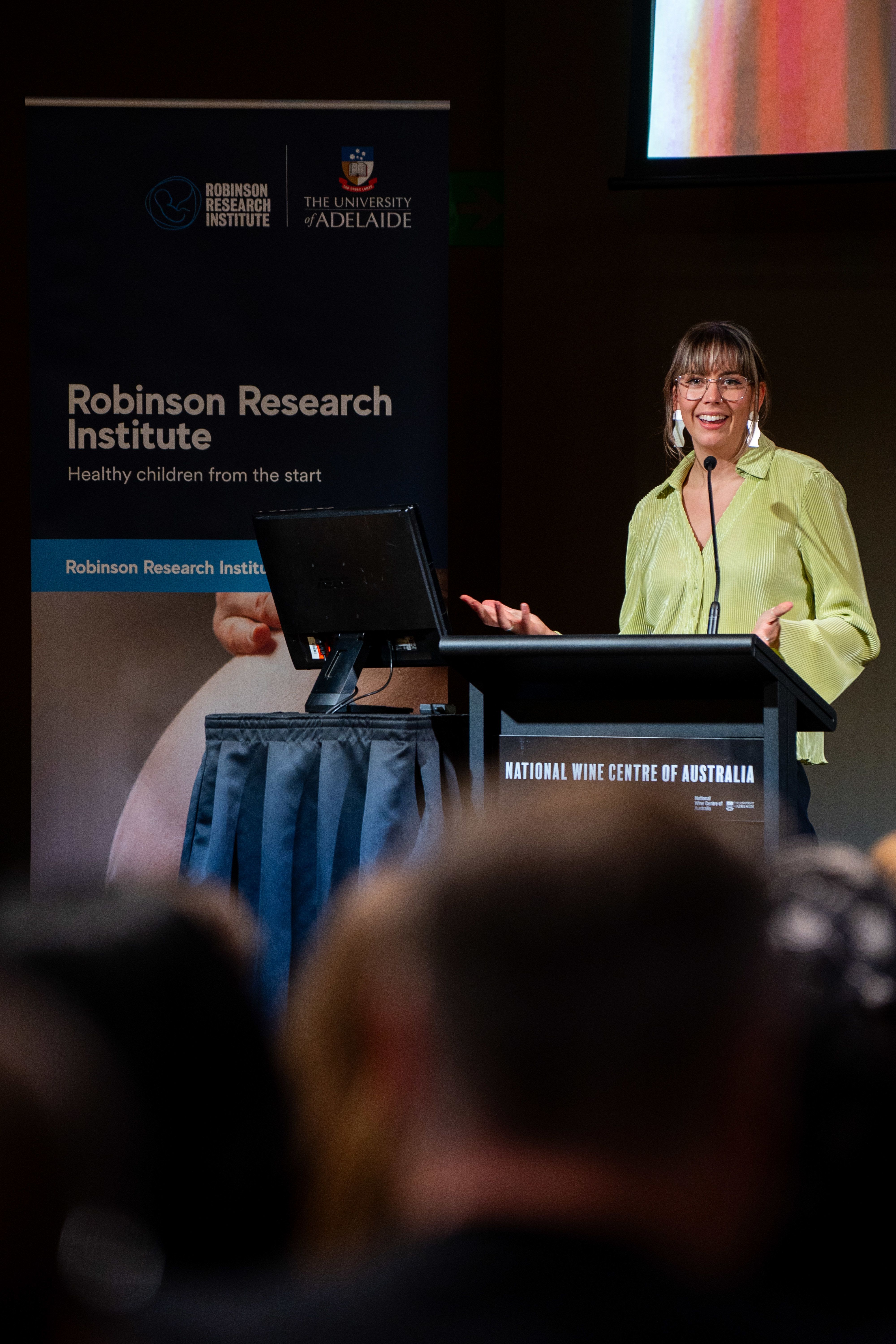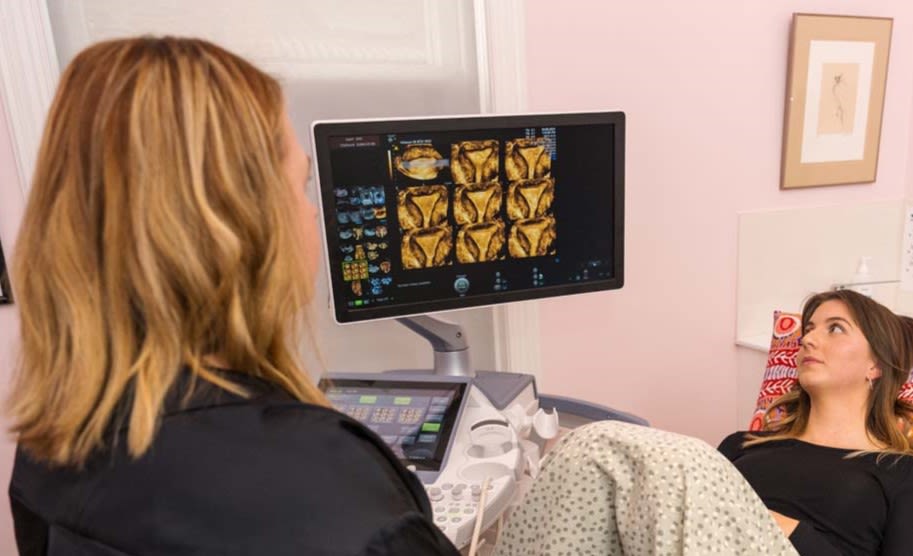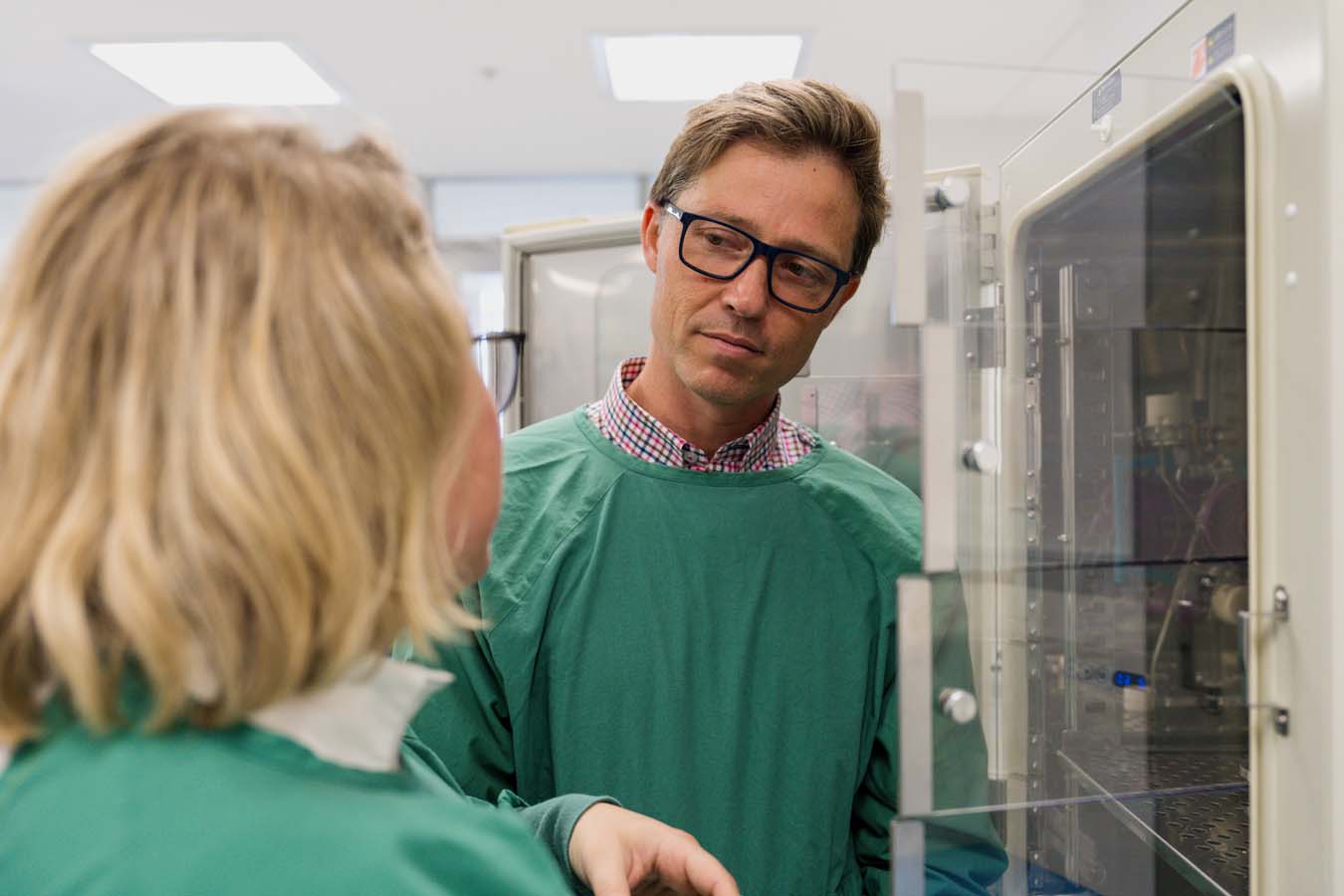Period Poverty

Citizen scientists will soon be helping researchers at the University of Adelaide’s Robinson Research Institute (RRI) unlock secrets of the microbiome and how it affects fertility, pregnancy and ultimately, the health of infants and mothers.
The study will reframe what is considered a waste product – used tampons – as a rich source of biological information, with important potential for improving women’s reproductive health.
It’s a project that clearly energizes Professor David MacIntyre, Director of RRI since March last year. A world-renowned reproductive biomedical specialist, he has long nurtured an interest in working closely with community at scale.
“The concept I have is around this ‘waste not, want not' principle,’’ he says. “Menstrual blood contains valuable biological information. Rather than throw that into the bin, we could have women send it to our labs where we could do specialized analysis and perhaps discover important markers of health that are otherwise being missed.’’
Winner of the 2024 J. Christian Herr Award from the American Society for Reproductive Immunology, Professor MacIntyre joined the RRI from Imperial College London, where his research led to new understandings of how microbial communities in the reproductive tract can affect the risk of miscarriage, premature rupture of membranes and preterm birth. He has pioneered new rapid testing technologies and treatments.
In a virtuous circle, his latest initiative was inspired when the RRI, home to world-class advances in reproduction, pregnancy and child health, invited Eloise Hall, managing director of TABOO Period Products, to speak at its annual symposium.

An award-winning entrepreneur, Ms Hall delivered an inspiring presentation on the work her social enterprise company is doing to eradicate period poverty and the importance of community engagement.
“A natural relationship started to form,’’ Professor MacIntyre says. “We asked Eloise to join our advisory board and she’s been bringing fantastic ideas and insights into how we can better communicate our science and get the community more involved in our research.’’
Ms Hall found synergies between RRI’s work and TABOO’s vision to combat period poverty, which affects millions of girls and women. It began in 2016, when she was in high school and conceived the start-up idea with her friend Isobel Marshall.
“TABOO recognises that menstruation is overlooked in many contexts, whether that’s with the lack of period products in bathrooms, the lack of menstrual health consultation with doctors, or poor menstrual health education delivered to young people,’’ she says.
“Advancing health outcomes for women is a key step towards gender equality. We know that destigmatizing menstruation also has a role to play, so to see a research initiative that embraces period blood as a data source is an exciting advancement.’’
The partnership "walks the walk" on key principles of the RRI’s 2025-2030 Strategic Plan, which has a focus on community engagement as well as commercial and industry partnerships. This is designed to shift discoveries from the bench to the bedside, strengthening translational research and researcher pathways.
A fruitful exchange of ideas became the springboard for RRI to develop the citizen-led project, which would recruit a motivated volunteer cohort to contribute samples.
“Working with citizen scientists, we’d be able to start to look at whether tampons contain critical biological information useful for understanding what’s happening in the reproductive tract, both microbiologically and immunologically. Our work has shown us that this is key in shaping health and disease risk,’’ Professor MacIntyre says.
An important area to investigate is whether menstrual blood could yield markers for endometriosis and offer insights into its causes. Similar investigations typically involve women attending a clinic and having samples retrieved using special devices.
In contrast, the RRI initiative would home-deliver packages to participants, containing standardised period products and sterile containers in which to return samples by post.
“We want people to be excited, put their hand up and say, ‘I want to be part of that’ and work with us on making these discoveries,’’ Professor MacIntyre says.
“There is already research that indicates you can get some information about microbes from such samples, but with our expertise, we think we can get a lot more.
“I suspect different types of chemicals in tampon samples will provide insight into the types of good and bad bacteria in the reproductive tract, and whether they are causing inflammation. We might even be able to use this type of data to ultimately diagnose things like endometriosis.’’
He is proud of the work already being pioneered by the Adelaide Endometriosis Research Group at RRI, led by Professor Louise Hull and Dr Jodie Avery, which includes developing a non-invasive diagnostic tool using MRI and ultrasound scans, drawing on the expertise of the Australian Institute for Machine Learning and others in the South Australian science eco-system.
The speed and non-invasive nature of these diagnostic tools is critical, as we know the condition often goes undiagnosed,’’ he says.
“One aspect of endometriosis is its implications for fertility. But it also has this huge social and emotional impact, beginning in adolescence.’’
The past year has been a whirlwind for Professor MacIntyre, who has been “on the ground” for barely six months. He remains Co-Director of the March of Dimes Prematurity Research Centre in the UK.
He points to recent exciting RRI breakthroughs:
- Professor Rebecca Robker and her group’s work identifying how environmental factors such as plasticisers and other chemicals can shape fertility and predict health outcomes early in foetal development.
- A study on placental ageing by Dr Anja Arthurs which may yield a model to understand other aspects of the aging process.
- Development of a device that triages sperm to improve IVF outcomes led by Professor Sarah Robertson AO and her team. Under commercialization, it might prove to be a game-changer for IVF clinics.
Professor MacIntyre is also passionate about improving the pipeline for early and mid-career researchers, through mentoring and funding of pilot projects as a precursor to government or commercial grants.
He champions demonstrating clear leadership pathways, citing the fast-track career and high profile of Associate Professor Kylie Dunning, who leads RRI’s Reproductive Success group and is a pioneer in cutting-edge photonics in IVF.
“Kylie’s work inspires her group and others around her,’’ he says. “They see that they too could have that ambition to become leaders and really make an impact.
“We have a large number of research teams at RRI but essentially all our efforts are focused on understanding how we can help mums and dads have healthy babies and get those babies off to the best start in life.’’
This content was paid for and created by The University of Adelaide. The editorial staff at The Chronicle had no role in its preparation. Find out more about paid content.







